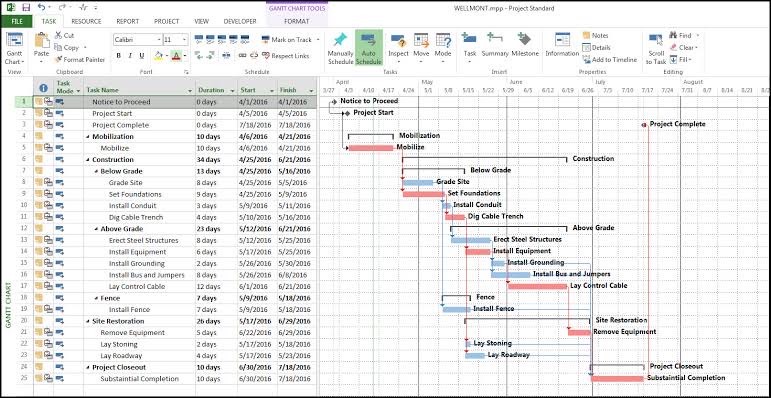An important tool used to manage time in Projects is a Project Schedule.
Did you know that over 75% of construction projects overshoot their completion deadline by over 10%? If your project was to take 10 months, an average outcome would mean that it would be completed within 11 months. Now if you are building a hotel and you only manage to get financing to commence in February with an expected end date of November, right in time for Christmas, then a mis-managed or poorly managed project would mean that you wouldn’t be able to launch your hotel right in time for the Christmas Holiday. This would be devastating to you financially since you would be unable to start recouping your (and the banks) investment during peak season. Keep in mind that any and all construction delays, more often than not, lead to cost overruns.
So what is the first step towards managing time in your project? The first step is to establish project timelines and ensure that all stakeholders are aware of the timelines for project delivery. This is the first and simplest step in this process. The client should communicate his project timelines even before a contractor is engaged. This ensures that all parties will work towards the stated timelines. It could be as simple as stating that the client would like to occupy the newly constructed premises in a year.
The next and most important step is to engage a project planner/manager to create for you a project schedule that aligns with the client’s proposed timelines. This can be as detailed or as high-level as requested. The schedule should not be too detailed as this leads to project micro-management, rather it should be used as a guideline on the health of the project with respect to time. The contractor should however have a very detailed schedule for his management of the works.

A proper project schedule should have the following elements
- Project Title
- Milestone Activities
- Minor Activities
- Start and End Dates
- Project Dependencies (Predecessors, Successors and Concurrencies)
Effective scheduling is an important step toward keeping a project on time and on budget. It helps the owner and the contractor plan their finances, and allows the contractor to track and speed up the construction activities. “What gets measured gets managed” and the first step to managing time is to measure it on a schedule.
If you are planning a construction project, consider hiring a professional to guide your team. A company offering construction project management services can prepare a schedule and evaluate your contractor’s scheduling efforts.

